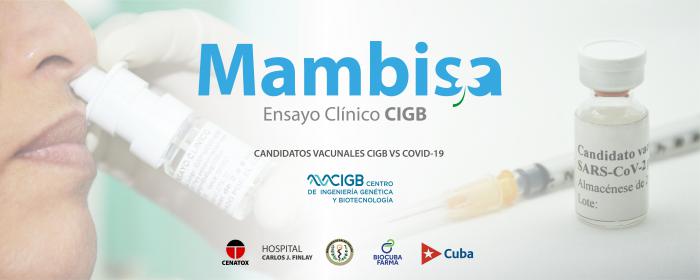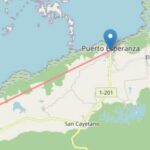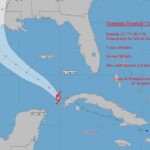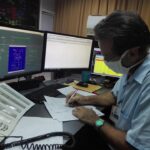Havana, Cuba: Developed by scientists from the Center for Genetic Engineering and Biotechnology (CIGB), the Cuban vaccine candidate Mambisa appears in the select group of five vaccines created until the beginning of April in the world, which are administered by nasal route and arrived now to the stage of clinical studies against COVID-19.
The Doctor of Science Marta Ayala Ávila, member of the Political Bureau of the Communist Party and general director of the aforementioned entity, belonging to the BioCubaFarma business group, specified that it is also the only one of that relationship based on the technological platform of antigens produced in a recombinant formed, which has, as main advantages, safety (the adverse effects registered are slight) and the possibility of putting multiple doses in order to reinforce the immune response over time.
Another benefit, she asserted, lies in its potential to induce this type of action in the nasopharyngeal mucosa, something particularly convenient, since it is a vaccine candidate against a disease whose entry point is through the respiratory tract.
She said that in 2015 the center registered the first therapeutic vaccine with this characteristic (the HeberNasvac), obtained in the world against a chronic infectious disease, in this case chronic hepatitis B.
One of the proteins that are part of the referred product, the nucleopepsid or protein that makes up the nucleus of the virus, and that has the ability to stimulate the immune response, is the one used for the development of Mambisa, combining it with the RBD protein.
According to Dr. Gerardo Guillén Nieto, director of Biomedical Research at CIGB, Mambisa completed the phase I clinical study in 88 volunteers, carried out at the National Toxicology Center (Cenatox).
It showed a good level of safety and the preliminary results also revealed an effective immunological action.
Likewise, in studies carried out with people who suffered from the disease during the first peak of the epidemic in our country, Mambisa proved to be a very good candidate to strengthen the immune system with the administration of a single dose, even six months after the infection occurred.
Taking into account the simplicity of its use and high safety, Mambisa could serve as a booster dose for immunization schedules with other vaccines that, due to their nature or the adverse reactions they cause, cannot be used in multiple applications.
Dr. Guillén Nieto pointed out that, currently, a phase I / II clinical study is being coordinated with the Hermanos Ameijeiras hospital, and with the Health area of the capital city of Centro Habana, a phase I / II clinical study in people previously infected with the virus, who will receive a single dose of the vaccine candidate, with the purpose of evaluating the safety and capacity of that single administration of Mambisa, to enhance immunity.





